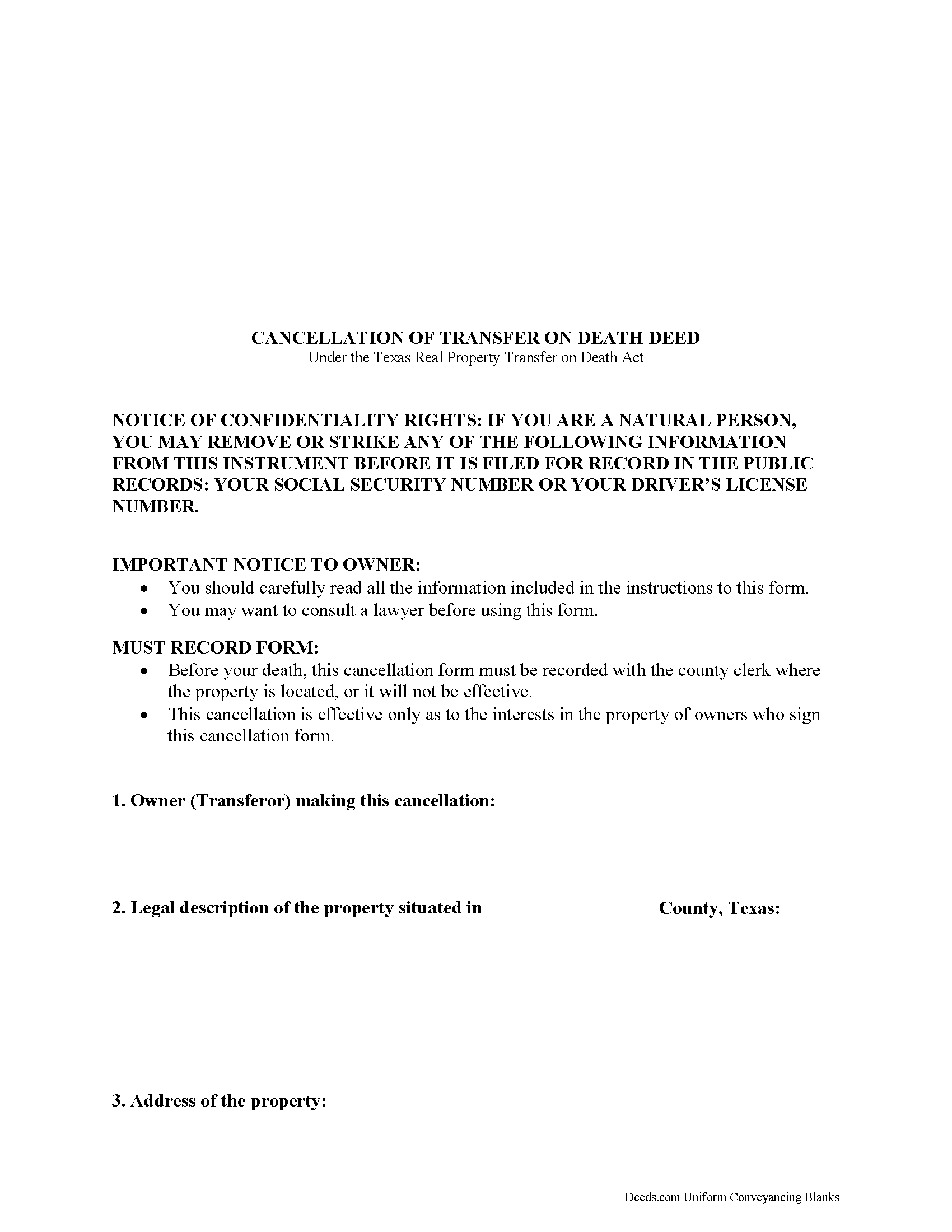Download Texas Transfer on Death Revocation Legal Forms

Texas Transfer on Death Revocation Overview

Revoking Transfer on Death Deeds in Texas
On September 1, 2015, owners of real property in Texas gained access to a useful estate planning tool: the statutory transfer on death deed (TODD). Modeled after the Uniform Real Property Transfer on Death Act and located at Chapter 14 of the Texas Estates Code, the Texas Real Property Transfer on Death Act governs the use of transfer on death deeds in the State of Texas.
IMPORTANT: TRANSFER ON DEATH DEEDS AND ASSOCIATED REVOCATIONS MUST BE RECORDED WHILE THE OWNER IS ALIVE OR THEY HAVE NO EFFECT.
Transfer on death deeds are nontestamentary instruments (not using a will). They allow transferors/owners to retain absolute ownership of and control over their land during their lives -- they may sell, mortgage, rent, or otherwise use the real estate as they desire, with no penalty for waste or obligation to notify the beneficiaries (114.101).
By recording the executed TODD, property owners may also take advantage of one of the most unique aspects of these instruments: revocability (114.052). Revocability is possible for two primary reasons: there is no obligation to notify the beneficiaries about the potential future interest they stand to gain when the owner dies; and these conveyances do not generally involve consideration (something of value given in exchange for the property) (114.056).
The statute provides several methods for revoking a transfer on death deed. The owner may execute and record a new TODD, cancelling the prior deed and designating a different beneficiary. The owner may also sell the real estate to someone else using a standard inter vivos conveyance such as a warranty deed or a quitclaim deed that contains a comment revoking the TODD. A third option uses a revocation form, which, after recording, cancels all previously recorded TODDs (114.057).
While the first two options are effective, it makes sense to file an instrument of revocation, because it provides a start and end point to a recorded TODD, which should reduce confusion in future title searches. For additional clarity, best practices dictate that an efficient estate plan does not contain conflicting directions, so make sure that wills, etc., reflect the most current information and the related documents can work together to reinforce the owner's intent.
Before revoking a transfer on death deed, consider the effect it will have on the comprehensive estate. Each situation is unique, so for complex circumstances or additional questions, contact a local attorney.